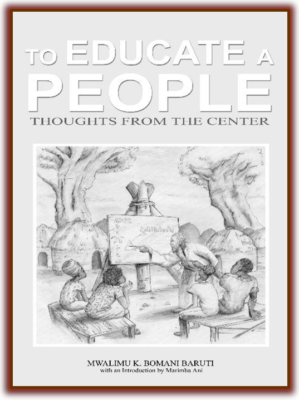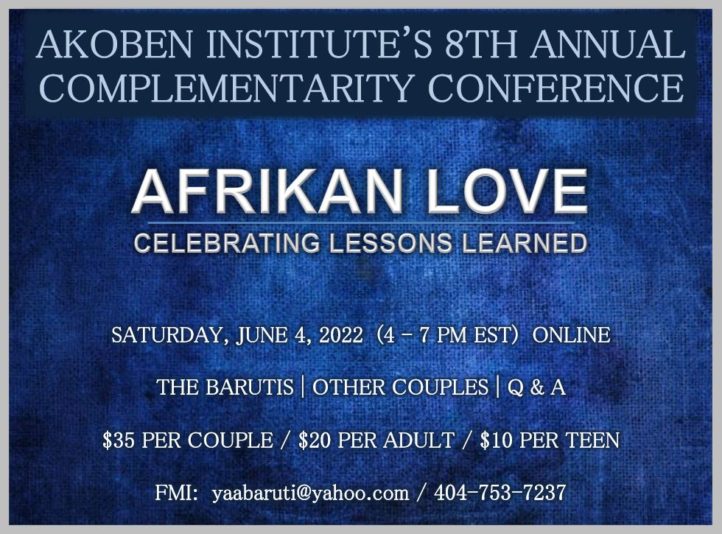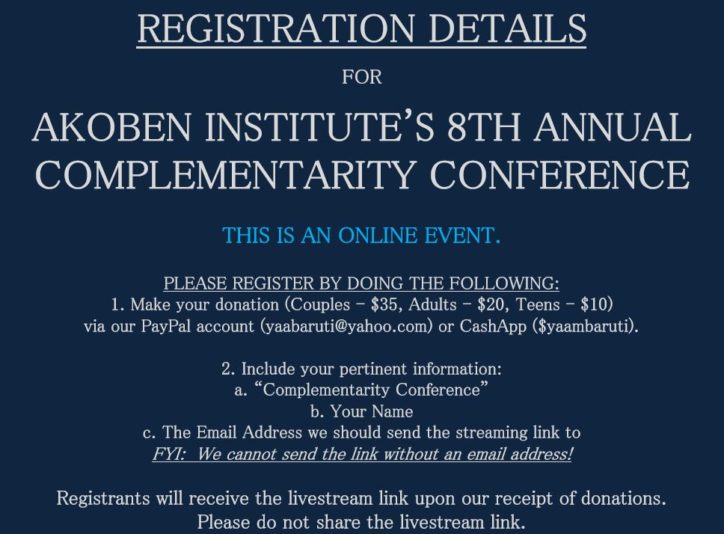-
“As our Ancestors warned us, “the child who is not afraid of anybody will develop bad manners.” This is but one of our proverbial jewels which directly speaks to the spoilage issue in general. And this reality is a specific circumstance. It is a circumstance where “bad manners” might even get them killed.
We can follow up this proverb with a clarifying one asserting that “he who has no manners does not care about others.” Related ones about this affliction include the Oromo’s “exaggerated love brings exaggerated hatred,” the Wolof’s “a child hates the one who gives him whatever he wants” and the Yoruba’s “when generosity becomes too much, it often begets ingratitude.”
Relative to the choice to spoil one’s child or not, a commonly spoken wisdom in our community has always been that “you can cry now or you can cry later.” This means that you can responsibly choose to accept the bad/hurt feelings that naturally come when you bring and maintain order in your child’s life when he or she is a child so that they may become self-disciplined young adults and adults. Or you can choose to not apply the necessary discipline throughout their childhood so that you are not forced to immediately feel their “pain.” This will insure that they will be externally controlled by the disciplining agents and agencies of yurugu’s society, forces which are fully prepared and eagerly waiting to contain, control and otherwise punish and destroy individuals lacking in self-control, individuals whose lack of childhood discipline has made them arrogant, self-centered and, therefore, unable to internally regulate their thoughts, words and behavior in socially acceptable ways. Obviously, for undisciplined, undisciplining parents, spoilage will bring the undesired “pain” later.
A point in fact, at very young ages, spoiled children have already subconsciously concluded that they are protected everywhere by the same individual(s) who fight all their battles, who constantly run interference for them. (This argument equally applies to tasks where others do the work that they refuse to do, either because they do not want to or feel they cannot do or both, yet they claim responsibility and guiltlessly accept credit for it.) They subconsciously believe this, even in the absence of that or those individuals. The worse part of this is that, as they grow older, this delusion of ever-present protection morphs into the misguided belief that it is they, not their childhood security, who shield themselves from harm everywhere.
This mistake can prove costly in that it weakens their ability to consider consequences beforehand. As a result, it can often lead them into dangerous situations from the streets to corporate settings because they have come to erroneously believe that they can independently and easily handle anything. They remain oblivious to the fact that there are quite a few angry, confused, eurocentric individuals just waiting for the opportunity to correct a fool.”2 Comments-
Peace and Power ✨ Having read this and your thoughts on spoilage/single motherhood in Homosexuality and the Emasculation of African males, I have a question. What roles do the parents have in discipline and what does it look like? For example, does gender weigh responsibility of a mother disciplining her daughter and father his son? If there’s a two parent household should the responsibility of discipline be split between both parents or taken up by the more dominant/respected parent? What is a healthy collaboration? I completely agree with your thoughts on spoilage and it’s long term effects.
In this age of ‘gentle parenting’ it’s sometimes hard for my heart to distinguish what information to use and leave to caucus confusion. Gentle Parenting says we can all use more ‘love’ in parenting, but what does that really mean and where is the line between love and spoilage? If judged by the child’s output/behavior we can tell when ‘love’ needs to be reeled back and ‘tough love’ inserted. Although it would be nice to know what a healthy balance looks like ahead of time.
Looking forward to this discussion. Abibifahodie!
-
Interestingly, the roles haven’t changed relative to discipline. What has changed is our acceptance that discipline is a negative, that any enforced guidance somehow cripples the child. It is the social context we have accepted as being more correct that what we have been doing (i.e., that yurugu knows better than us how we should raise our children) and the normalization/rationalization of that childrearing philosophy which has changed, dramatically. It is vital to understand that our men and women, in their natural states/minds, bring different energies to the socialization process and that, because of the effects of the Maafa on our identities as men, as well as on the family and community, we have had to compensate for the disruption it has produced on how we are able to raise/rear children in an anti-Afrikan environment where the Afrikan families mission has been to rubberstamp and institute defenseless children with no knowledge of self. In this area, which, by the way, is beginning its fourth generation of progressive normalization of deracialized/deculturalized minds, we are wholly confused as to what the respective roles are. Nonetheless, discipline is as much the responsibility of the woman as the man. As in any division of labor within the family, it’s just different depending on their propensities and personality. I don’t buy the “gentle parenting” approach. Our children need tough skins in a reality designed to kill them. And love is realitive and pretty much misdefined and fake in the western setting. “Parents” [are trained to] tell their children all day long that they love them but then neglect them through not applying adequate, humane discipline. This, I consider to be a serious form of child abuse. And, in terms of what a healthy disciplined environment looks like or is attainable, it depends on those involved (something not achieved by many aspiring to Afrikan centeredness because, in a world where quality is measured by speed/quickness and impulse, they don’t spend the time and energy necessary to truly get to know the mind, heart and depth of mentacide of the individual they intend to spend their lives with). You might want to consider attending our Complementarity Conference (june 4th) and bring this up during the Q&A (when any reasonable, non-yurugu validating question dealing with Afrikan male/female complementarity is welcome). There will be three seasoned, frontline, long married couples there to bring their thoughts to bear on this critical, far-reaching topic.
-
-




